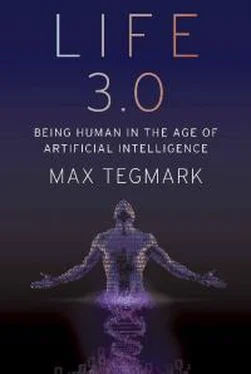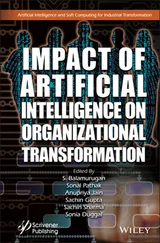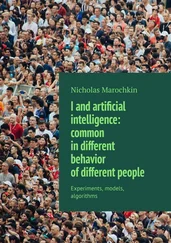Some people counter my argument by saying that, yes, intelligent life could be very rare, but in fact it isn’t—our Galaxy is teeming with intelligent life that mainstream scientists are simply not noticing. Perhaps aliens have already visited Earth, as UFO enthusiasts claim. Perhaps aliens haven’t visited Earth, but they’re out there and they’re deliberately hiding from us (this has been called the “zoo hypothesis” by the U.S. astronomer John A. Ball, and features in sci-fi classics such as Olaf Stapledon’s Star Maker ). Or perhaps they’re out there without deliberately hiding: they’re simply not interested in space settlement or large engineering projects that we’d have noticed.
Sure, we need to keep an open mind about these possibilities, but since there’s no generally accepted evidence for any of them, we also need to take seriously the alternative: that we’re alone. Moreover, I think we shouldn’t underestimate the diversity of advanced civilizations by assuming that they all share goals that make them go unnoticed: we saw above that resource acquisition is quite a natural goal for a civilization to have, and for us to notice, all it takes is one civilization deciding to overtly settle all it can and hence engulf our Galaxy and beyond. Confronted with the fact that there are millions of habitable Earth-like planets in our Galaxy that are billions of years older than Earth, giving ample time for ambitious inhabitants to settle the Galaxy, we therefore can’t dismiss the most obvious interpretation: that the origin of life requires a random fluke so unlikely that they’re all uninhabited.
If life is not rare after all, we may soon know. Ambitious astronomical surveys are searching atmospheres of Earth-like planets for evidence of oxygen produced by life. In parallel with this search for any life, the search for intelligent life was recently boosted by the Russian philanthropist Yuri Milner’s $100 million project “Breakthrough Listen.”
It’s important not to be overly anthropocentric when searching for advanced life: if we discover an extraterrestrial civilization, it’s likely to already have gone superintelligent. As Martin Rees put it in a recent essay, “the history of human technological civilization is measured in centuries—and it may be only one or two more centuries before humans are overtaken or transcended by inorganic intelligence, which will then persist, continuing to evolve, for billions of years….We would be most unlikely to ‘catch’ it in the brief sliver of time when it took organic form.”11 I agree with Jay Olson’s conclusion in his aforementioned space settlement paper: “We regard the possibility that advanced intelligence will make use of the universe’s resources to simply populate existing earthlike planets with advanced versions of humans as an unlikely endpoint to the progression of technology.” So when you imagine aliens, don’t think of little green fellows with two arms and two legs, but think of the superintelligent spacefaring life we explored earlier in this chapter.
Although I’m a strong supporter of all the ongoing searches for extraterrestrial life, which are shedding light on one of the most fascinating questions in science, I’m secretly hoping that they’ll all fail and find nothing! The apparent incompatibility between the abundance of habitable planets in our Galaxy and the lack of extraterrestrial visitors, known as the Fermi paradox, suggests the existence of what the economist Robin Hanson calls a “Great Filter,” an evolutionary/technological roadblock somewhere along the developmental path from the non-living matter to space-settling life. If we discover independently evolved life elsewhere, this would suggest that primitive life isn’t rare, and that the roadblock lies after our current human stage of development—perhaps because space settlement is impossible, or because almost all advanced civilizations self-destruct before they’re able to go cosmic. I’m therefore crossing my fingers that all searches for extraterrestrial life find nothing: this is consistent with the scenario where evolving intelligent life is rare but we humans got lucky, so that we have the roadblock behind us and have extraordinary future potential.
Outlook
So far, we’ve spent this book exploring the history of life in our Universe, from its humble beginnings billions of years ago to possible grand futures billions of years from now. If our current AI development eventually triggers an intelligence explosion and optimized space settlement, it will be an explosion in a truly cosmic sense: after spending billions of years as an almost negligibly small perturbation on an indifferent lifeless cosmos, life suddenly explodes onto the cosmic arena as a spherical blast wave expanding near the speed of light, never slowing down, and igniting everything in its path with the spark of life.
Such optimistic views of the importance of life in our cosmic future have been eloquently articulated by many of the thinkers we’ve encountered in this book. Because sci-fi authors are often dismissed as unrealistic romantic dreamers, I find it ironic that most sci-fi and scientific writing about space settlement now appears too pessimistic in the light of superintelligence. For example, we saw how intergalactic travel becomes much easier once people and other intelligent entities can be transmitted in digital form, potentially making us masters of our own destiny not only in our Solar System or the Milky Way Galaxy, but also in the cosmos.
Above we considered the very real possibility that we’re the only high-tech civilization in our Universe. Let’s spend the rest of this chapter exploring this scenario, and the huge moral responsibility it entails. This means that after 13.8 billion years, life in our Universe has reached a fork in the road, facing a choice between flourishing throughout the cosmos or going extinct. If we don’t keep improving our technology, the question isn’t whether humanity will go extinct, but how . What will get us first—an asteroid, a supervolcano, the burning heat of the aging Sun, or some other calamity (see figure 5.1)? Once we’re gone, the cosmic drama predicted by Freeman Dyson will play on without spectators: barring a cosmocalypse, stars burn out, galaxies fade and black holes evaporate, each ending its life with a huge explosion that releases over a million times as much energy as the Tsar Bomba, the most powerful hydrogen bomb ever built. As Freeman put it: “The cold expanding universe will be illuminated by occasional fireworks for a very long time.” Alas, this fireworks display will be a meaningless waste, with nobody there to enjoy it.
Without technology, our human extinction is imminent in the cosmic context of tens of billions of years, rendering the entire drama of life in our Universe merely a brief and transient flash of beauty, passion and meaning in a near eternity of meaninglessness experienced by nobody. What a wasted opportunity that would be! If instead of eschewing technology, we choose to embrace it, then we up the ante: we gain the potential both for life to survive and flourish and for life to go extinct even sooner, self-destructing due to poor planning (see figure 5.1). My vote is for embracing technology, and proceeding not with blind faith in what we build, but with caution, foresight and careful planning.
After 13.8 billion years of cosmic history, we find ourselves in a breathtakingly beautiful Universe, which through us humans has come alive and started becoming aware of itself. We’ve seen that life’s future potential in our Universe is grander than the wildest dreams of our ancestors, tempered by an equally real potential for intelligent life to go permanently extinct. Will life in our Universe fulfill its potential or squander it? This depends to a great extent on what we humans alive today do during our lifetime, and I’m optimistic that we can make the future of life truly awesome if we make the right choices. What should we want and how can we attain those goals? Let’s spend the rest of the book exploring some of the most difficult challenges involved and what we can do about them.
Читать дальше












